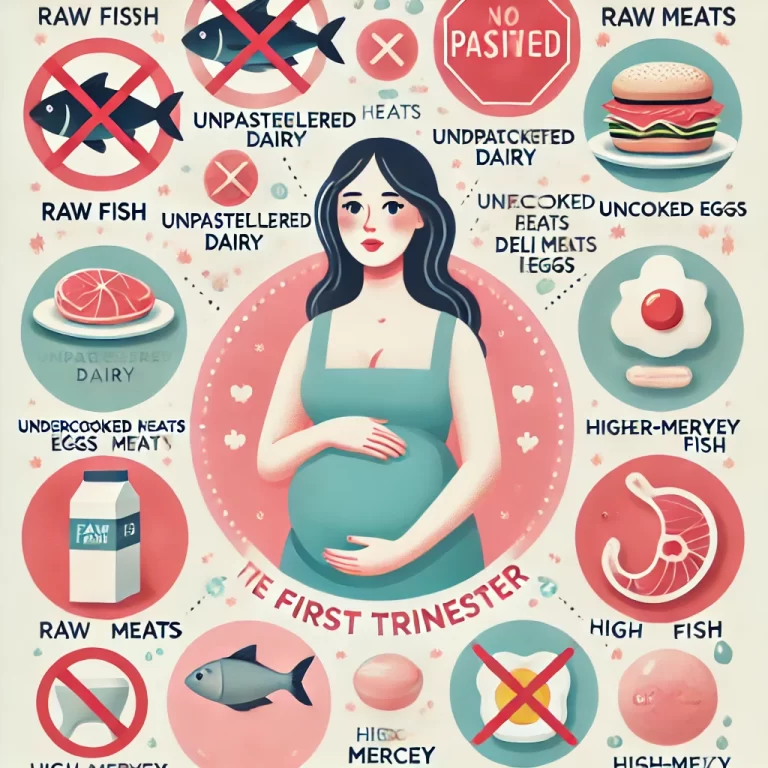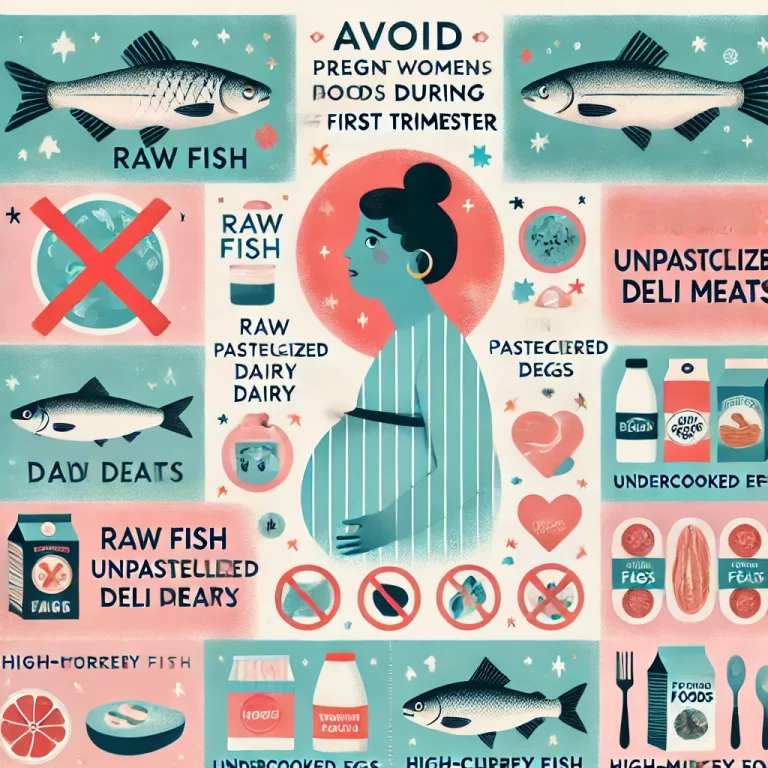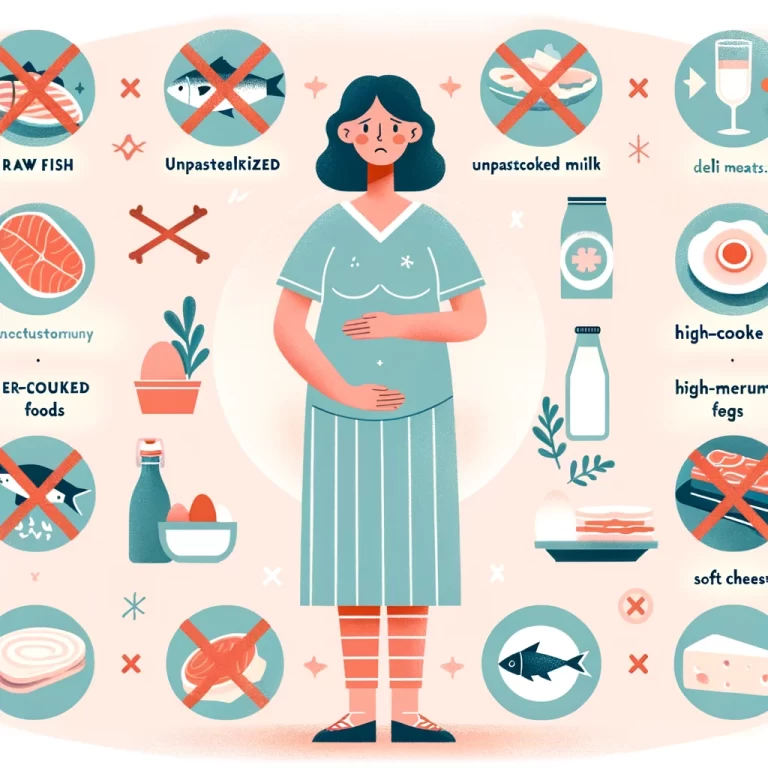Top 10 Foods Pregnant Women Should Avoid Early On
Top 10 Foods Pregnant Women Should Avoid Early On
What not to eat in the first 3 months of pregnancy is the question that most pregnant mothers are interested in. Because nutrition during pregnancy directly affects the health of the pregnant mother and the weight of the fetus. In the first 3 months, pregnant mothers should directly avoid foods that can harm the health of the mother and baby. Below are 10 foods that pregnant mothers should avoid in the first 3 months. Let’s find out with Wilimedia!

How important is the nutritional regimen in the first three months?
The first three months of pregnancy are extremely important for the formation of the fetus. The milestone in the 4th week is that the baby’s nervous system will be formed and in the 6th week the brain and spinal cord will be developed.
Entering the 7th week, compared to the first week, this week the baby has the most obvious changes. Starting to change and develop from hands to feet, fingers to webbed toes. The tail bone is gradually shrinking and soon disappears. In the 8th week, the baby is in the process of developing the face. If you can see, you will see the fetus developing the upper lip, nose and eyelids
Therefore, to develop comprehensively, pregnant mothers need to be provided with adequate nutrients, especially the necessary micronutrients for the fetus to develop comprehensively.
What should not be eaten in the first three months of pregnancy?
Pregnant mothers need to pay attention when planning their diet because not all foods are suitable for pregnant mothers, some foods even increase the risk of miscarriage and affect the health of the fetus.
Below are foods that should not be eaten in the first three months of pregnancy

1. Fish High in Mercury
Seafood can be an excellent source of protein, and the omega-3 fatty acids in many fish can promote your baby’s brain and eye development. However, some fish and shellfish contain dangerous levels of mercury. The fetus is most sensitive to the effects of mercury, especially during the third and fourth months of pregnancy. The buildup of mercury can harm your baby’s developing nervous system.
The level of mercury in each fish varies, depending on many factors such as habitat, type of fish, size, and diet. Predatory fish are usually larger and at the top of the food chain, so they tend to contain more mercury. Fish that contain a lot of mercury are on the list of what pregnant women should not eat, including: stingray, swordfish, shark, sea bass, tuna, etc.
Therefore, instead of eating large fish, pregnant women can choose fish such as red tilapia, salmon, carp, snakehead fish, etc. in their diet. It is recommended that pregnant women eat 224-336 grams of fish/seafood per week during pregnancy.
2. Raw or undercooked food
Raw or undercooked food is not recommended in the nutritional menu of pregnant women. Pregnant women who consume raw or undercooked food are at risk of coliform bacteria, toxoplasmosis and salmonella.
In which, toxoplasmosis is caused by the parasite toxoplasma, an infection that can affect the baby if the pregnant mother gets the disease for the first time. The disease can cause brain damage or blindness in the fetus.
3. Processed foods, cold cuts
Processed foods, cold cuts have many advantages such as saving time in preparation, easy to eat, easy to use, however, these foods are on the list of foods that pregnant women should not eat.
Cold cuts are known to contain listeria bacteria, which can cause miscarriage. Listeria can pass through the placenta and can infect the baby, leading to infection or blood poisoning and can be life-threatening. If you are pregnant and considering eating cold cuts, remember to reheat the meat until it is cooked.
4. Raw eggs
Raw or undercooked eggs can carry disease-causing bacteria such as Salmonella, which can cause food poisoning. Pregnancy temporarily weakens a woman’s immune system, so during this period, women are especially susceptible to foodborne illnesses.

If a pregnant woman is sick with Salmonella, she may have symptoms such as high fever, vomiting, diarrhea and dehydration. In some severe cases, the disease can progress to cause premature birth or miscarriage. Therefore, it is important to only eat thoroughly cooked eggs during pregnancy to ensure that the bacteria are killed.
5. Do not use alcohol and alcoholic beverages
In the first 3 months of pregnancy, the mother should avoid using alcohol and alcoholic beverages. Using them can seriously affect the nervous system of the fetus as well as affect the baby’s future development.
6. Raw papaya
The risk of miscarriage in the first 3 months of pregnancy is often higher, so what should pregnant women avoid eating in the first 3 months to be good for the fetus. Raw papaya is a food that should be avoided because papaya latex can cause uterine contractions, and can also cause allergies with symptoms such as skin rashes, mouth swelling, or more seriously, difficulty breathing or anaphylactic shock.
7. Pineapple
In addition to papaya, what should pregnant women avoid eating in the first 3 months to avoid miscarriage? In the fruit family, a harmless fruit for pregnant women is pineapple. Because pineapple contains a substance called bromelain, which can soften the cervix and cause early labor. Pregnant women can occasionally eat a little pineapple, but should not eat it regularly or eat too much because pineapple can cause some digestive problems and allergies.
8. Fresh coconut water
Speaking of fresh coconut water, it is not only a refreshing drink but also brings countless benefits with the ability to: brighten the skin, treat constipation, good for the digestive system, support cooling the body when the outside temperature is hot because fresh coconut water contains cold properties. However, fresh coconut water contains high cold properties, drinking in the first three months can put pregnant women at risk of miscarriage.
Pregnant women with the following diseases cannot drink fresh coconut water:
-
- Cystic fibrosis
- Kidney
- Prone to allergies
9. Beetroot
Is beetroot good for pregnant women? This is a question that many pregnant women are interested in. Beetroot is actually a type of root vegetable with many nutrients, bringing health to pregnant women. Pregnant women can process beetroot into the daily menu to absorb all of its nutrients. However, you should only eat beetroot 1-2 meals a week and combine it with other dishes to ensure nutrition. If you eat too much, you will absorb too much betaine, causing nausea and diarrhea.
10. Malabar spinach
Malabar spinach is a favorite dish of many people, but this vegetable is considered “poison” for pregnant women because it can cause miscarriage, stillbirth, and hemorrhage. Doctors even recommend not eating Malabar spinach in the first 3 months to avoid complications in pregnancy.

Conclusion
What pregnant women should and should not eat in the first 3 months is a very important issue during pregnancy because a complete diet and limiting harmful foods can help the fetus develop healthily and safely.
Website: https://wilimedia.com/
Fanpage: https://www.facebook.com/wilimedia.en
Mail: [email protected]
